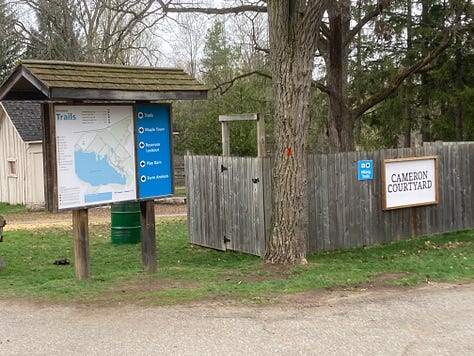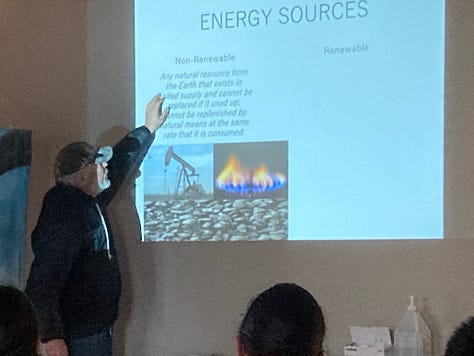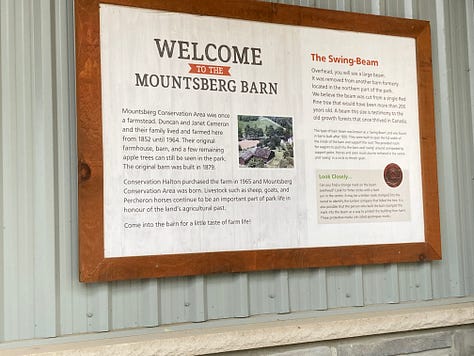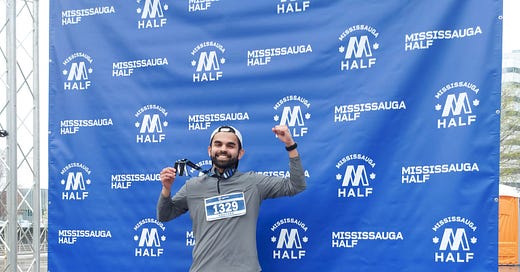#24 - Notes on Running, Field Trips and Teachers
Education Coffee is a 2xweekly newsletter on people, ideas and culture.
Hello World,
In each edition of this newsletter, I will share five inspiring web resources that I have curated after hours of research to ensure that you have the best education coffee in your inbox. I also hope to share some lessons from the classroom in these upcoming editions of the newsletter.
1) Running Marathons and Learning at Schools
I recently completed my first half marathon. While running the race I realised that training for a marathon is very similar to learning at school. You need to practice well to get good at long distance running and math problems. You need to challenge and push yourself to run faster and write better essays. You need to be meticulous about your running form and the steps of the scientific method. You need to slow down when your body and mind needs rest on the racetrack and at school. Most importantly each child will come into school at their own level of understanding. You need to teach them the skills to go from where they are to where they can be. Similarly you need to gradually improve your race times by running a little longer and a little faster each day. The last four months of half marathon training have taught me some important lessons that are also applicable in the classroom which are: run your own race, stop comparing yourself to others, set small targets, focus on the present moment and get your basics write. You can find out more about the benefits of running for children in the article linked above which include improving perseverance, boosting self esteem and promoting mental health.
2) Field Trips and Place Based Learning
The article linked above by Educating Adventures lists out 9 benefits of field trips for students which inlcude improving critical thinking skills, expanding world view and learning about local culture. My Grade 5 class recently completed field trip visits to our local library and a conservation park.



At the local library we learned about the services available for families in the area, workshops at the library, genres of books and the importance of media literacy. At the conservation area my students participated in a variety of workshops on how energy can be produced in a more reliable and sustainable way in Canada and around the world. There were creative workshops and engaging activities on solar energy, hydro energy, wind energy and heat energy. I loved observing my students
learning in a new environment
accessing tools and resources not available at school
learning about academic contexts in a real world context
learn in a more hands on immersive way
develop social emotional skills
3) The Economic Realities of being an Educator
I am 29. I have three degrees. I am a teacher. I still live pay check to pay check. This is the harsh reality of being a teacher in North America. In Canada, public school teachers get paid anywhere between $45,000 to $70,000. In the US, public school teachers get paid between $35,000 to $55,000. The range is much lower in the private school system. In the long term the possibility for financial growth is limited. Teachers with 15-20 years of experience earn between $70,000 to $95,000. This is very different from other professions where experience pays a lot more. Teachers often supplement their regular income with money from other part time jobs. This can include online tutoring, baby -sitting, fast food jobs and more. The pay-off is in fair for the amount of training and effort it takes to become a certified professional. I truly believe this is one of the reasons manny young people leave the profession in the first few years. We will lose our best talent if we do not pay them enough to build a career and life. Here is a great video on low teacher pay in North America.
5) Learning Stories Episode 18- Kiran Reddy
I started a YouTube Channel called ‘Learning Stories’. This is a show where we interview a diverse set of learners from the 21st century. Each guest profiled here has a unique story to share about how they acquired a set of valuable skills and knowledge in a creative and innovative manner. In the process, we hope to uncover a new understanding of learning as conceptualized, imagined, and narrated in these learning stories. These conversations have given me so many insights on the learning process within and beyond the classroom.
On Episode 18 of #LearningStories we chat with Kiran Reddy. He is a lawyer, social entrepreneur, catalyst, activist and community builder who is a big proponent of pursuing Voluntary, Nonprofit and For Profit engagements in parallel. He pursued and completed a law degree from the Symbiosis Law School in Pune, India from 2008 to 2013. He has spent the last eight years working in the space of leadership development, community engagement and grassroots capacity building with organisations like Helm of Eight, Risevertise Media, Start Up Grind, Headstart Network, Catalyst 2030 and Students for Liberty. Kiran thrives in collaborative environments that bring together all stakeholders for an overall ecosystem level systemic change. In 2017, he co-founded a passion project Helm of Eight (www.helmofeight.com), which works to empower purpose-driven individuals, organisations and collectives across domains to enhance their impact potential. Helm of Eight acts as catalysts to organizations, coaches to individuals and facilitators to collectives with an approach that is anchored in empathy, collaboration and co-creation. Kiran is a Member/ Alumni of Students for Liberty, Centre for Civil Society, Yes Foundation’s Jam Network, Complexity University, Catalyst 2030 and others. You can reach out to Kiran on LinkedIn at https://www.linkedin.com/in/vibereddy/
Show Notes
You can use business for social good.
You can develop skills and learn new things by starting and running a business.
Understand all the stakeholders involved in a system before you try to address a problem in the system. Each stakeholder will have a different need and you need to understand how to best meet these specific needs.
Creating impact is an iterative process involving conversations with multiple stakeholders involved in the problem being addressed.
Reflect and think about the different forms of capital you are in the process of creating as an organisation which include social capital, financial capital, intellectual capital, material capital, spiritual capital and cultural capital.
Use the power of extended networks to solve problems at a local level. A problem addressed in one part of India may be addressed in a different way in another part of India. It is the same when problems are addressed in different countries. You can learn a lot from observing people and organisations that solve the same problems in another context or part of the world.
5) Design and Education
This is an amazing video about how a parent used design thinking to create and design a school for her children in Ahmedabad, India. I watch this video when I feel low as an educator and it lifts my spirits immediately.
Please do send me your thoughts and resources on any edition of this newsletter through email at abhishekashokshetty@gmail.com or on twitter @AbhishekShetty_. I love taking these discussions forward on those platforms.
Abhishek
01/05/2023






